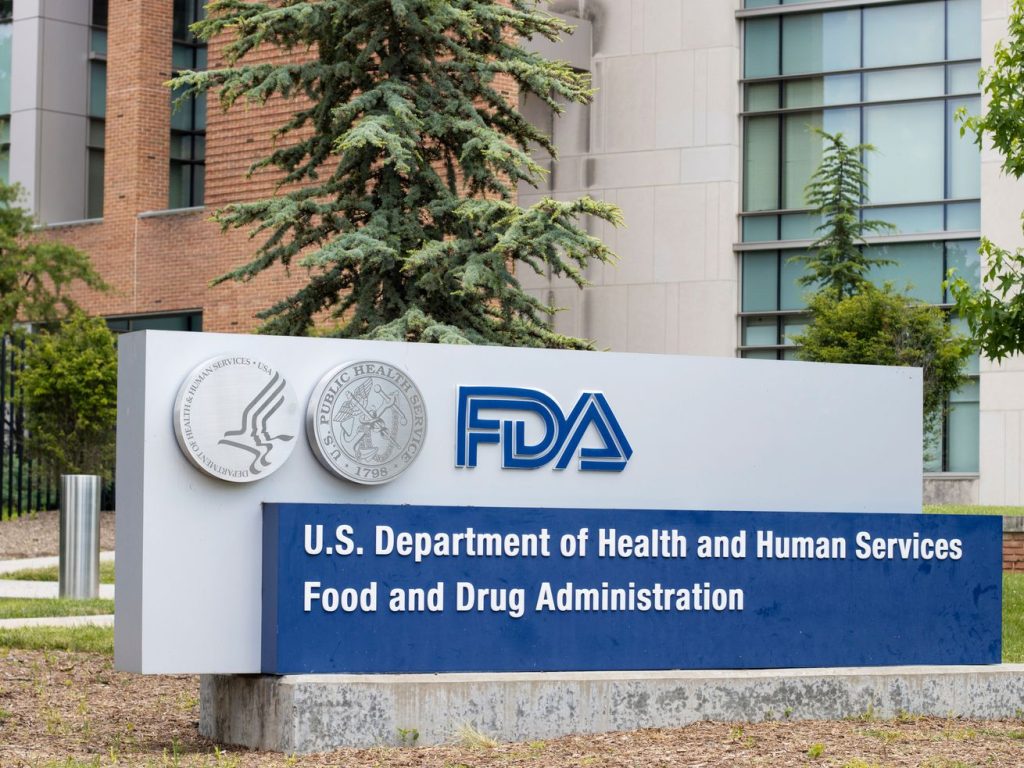What is the FDA even doing right now? | Tada Images/Shutterstock.com
The agency is being less transparent about foodborne illness outbreaks and planning to end routine inspections of many foods. Yikes.
Just in case you weren’t already worried enough about the state of our food supply, the Food and Drug Administration has apparently decided that telling American consumers about deadly food-borne illness outbreaks just isn’t important anymore.
An investigation by NBC News uncovered an FDA report from November 2024, when people started coming down with serious illnesses after consuming lettuce that was contaminated with E. coli bacteria. Instead of telling the public about this outbreak, which sickened 88 people and killed one, the FDA simply — and quietly — closed the investigation without providing any further information to the public. It did not name the lettuce producer involved in the outbreak, stores where the contaminated lettuce was sold, or how many consumers might have purchased the E. coli-infested produce.
As NBC notes, the FDA is not obligated by law to disclose these outbreaks, and the agency told NBC that it did not inform the public because there was no more infected lettuce for sale by the time it discovered the cause of the outbreak. I guess we’ll just have to take their word for it. Because the agency didn’t publish its findings, it’s impossible to know if there was actually a thorough investigation. And now that the FDA is making plans to end its routine inspections of most domestic food products and laying off communications staffers, this shift away from transparency feels even scarier.
Why should the FDA be transparent about foodborne illness outbreaks? The first reason is obvious: When an outbreak spurs a recall, people are more likely to throw away contaminated food rather than eat it when they are notified of an outbreak. Even if enough time has passed to ensure all the contaminated food is off grocery store shelves, there may be people who were sickened by E. coli, but didn’t know the cause of the illness; that knowledge could inform their treatment choices moving forward, and it could provide new information to regulators about the scope and impact of the outbreak.
The FDA has, in recent years, shifted toward “greater transparency” because letting people know that they might have bacteria-contaminated groceries in their refrigerator has multiple benefits to public health. Now, experts worry that the agency is shifting away from transparency, which could mean more people will get sick simply because they don’t know that their lettuce is contaminated. Food safety experts started sounding the alarm about this particular outbreak in January, noting a change in the FDA’s handling of food-borne illness outbreaks.
Meanwhile, an analysis conducted by the U.S. Public Interest Research Group (PIRG) Education Fund found that confirmed illnesses caused by contaminated food rose by 25 percent in 2024 alone. But instead of doing anything to address what objectively feels like a foodborne illness crisis, the FDA is apparently choosing to deprive consumers of information that could literally be life or death in some cases, especially for elderly and immunocompromised people.
Already, more than 40 percent of consumers have little to no confidence in the government’s ability to keep the food supply safe. It doesn’t help, either, that this news comes at a time when Department of Health and Human Services head Robert F. Kennedy Jr., whose purview includes the FDA, is out in the press spouting unscientific lies and conspiracy theories about seed oils and food dyes, neither of which have been shown in any major studies to make people sick.
I don’t want to be in the business of doomsaying, but this outbreak does feel like the first of many that will likely happen in the coming months as food producers relax their standards in the absence of regulatory oversight. It’s almost as if those currently in charge of the FDA never read The Jungle, Upton Sinclair’s seminal 1905 book about the horrors of slaughterhouses and meat packing facilities at the turn of the 20th century, which sparked a public outcry and helped usher in food safety regulations. The takeaway from the novel, and properly publicized information about bacterial outbreaks generally, is that a shift away from food safety regulation is a horrible idea. If things continue this way, increased outbreaks feel all but inevitable — it’s just that we probably won’t hear about them.



